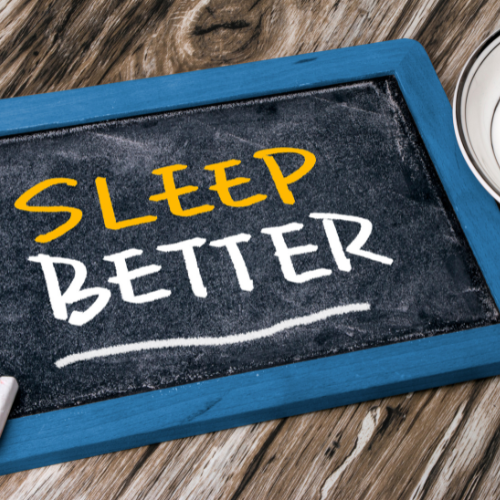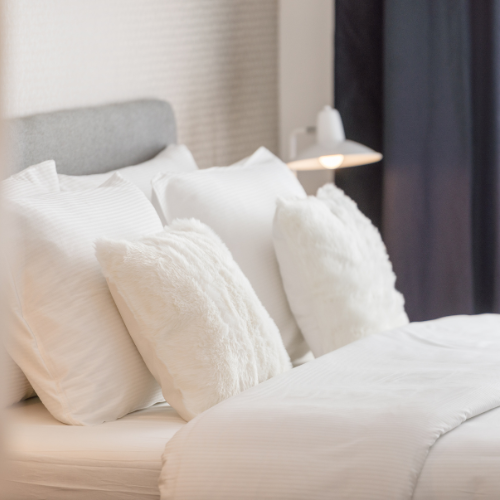The Importance Of A Good Nights Sleep As We Get Older!
Getting a good night’s sleep becomes increasingly important as we age, yet it often becomes more challenging. The natural ageing process can change sleep patterns, making it more difficult to fall, stay, or achieve deep, restorative sleep. However, understanding these changes and adopting healthy sleep habits can significantly improve your sleep quality and overall well-being.
I have always had a decent sleep pattern up until about 18 months ago and now I am finding it more challenging to get a full night’s sleep, age has a lot to answer for!
Understanding Sleep Changes with Age
As we get older, our bodies undergo various changes that can affect sleep. For example, the production of melatonin, the hormone that regulates sleep-wake cycles, tends to decrease with age. This can make it harder to fall asleep and stay asleep. Additionally, older adults may experience more fragmented sleep, waking up multiple times at night. These changes are normal but can be frustrating, especially if they lead to sleep deprivation.
One of the key changes is the shift in sleep architecture. The time spent in deep sleep (slow-wave sleep) decreases as we age, while lighter stages of sleep increase. This can make older adults more prone to waking up from noise or other disturbances. Moreover, conditions like arthritis, chronic pain, or restless leg syndrome, which are more common in older adults, can further disrupt sleep.

Creating a Sleep-Friendly Environment
A sleep-friendly environment can make a significant difference in your ability to fall asleep and stay asleep. Start by ensuring your bedroom is comfortable, quiet, and cool. The ideal temperature for sleep is typically between 60 and 67 degrees Fahrenheit (15 to 19 degrees Celsius). A cooler room helps lower your body temperature, which signals to your brain that it’s time to sleep.
Investing in a good-quality mattress and pillows that provide adequate support and comfort is also crucial. As you age, your body may require different levels of support, so consider updating your mattress if it’s more than 7-10 years old or if you wake up with aches and pains. Simba mattresses have always been great and over the years they have brought out more to their range, so there is something to suit everyone. With sizes from single, through to small double mattresses up to king size, your whole family can sleep peacefully.
Blackout curtains, white noise machines, or earplugs can also help eliminate distractions that may disturb your sleep.
It’s also important to limit exposure to screens before bedtime. The blue light emitted by phones, tablets, and computers can interfere with melatonin production, making it harder to fall asleep. Try to power down at least an hour before bed and engage in relaxing activities like reading a book or taking a warm bath some natural bath salts instead. We all fall into the trap these days of reading on our phones or even just scrolling, so if you can make better habits, your body will thank you in the long run!
The Role of Diet and Exercise
Diet and exercise play crucial roles in promoting good sleep, especially as you get older. What you eat and drink can have a significant impact on your sleep quality. Caffeine and alcohol, for instance, can disrupt your sleep patterns. Caffeine is a stimulant that can stay in your system for hours, so it’s best to avoid it in the afternoon and evening. While alcohol may initially make you feel sleepy, it can interfere with deep sleep and lead to fragmented sleep later in the night.
On the other hand, certain foods can promote sleep. Foods rich in tryptophan, such as turkey, nuts, and seeds, can help increase the production of serotonin and melatonin, promoting relaxation and sleepiness. Complex carbohydrates like whole grains can also help, as they increase the availability of tryptophan in the brain.
Regular physical activity is another essential component of good sleep hygiene. Exercise helps reduce stress, improve mood, and regulate the sleep-wake cycle. However, the timing of exercise is important. While regular exercise can promote better sleep, vigorous exercise close to bedtime can have the opposite effect, as it raises your heart rate and body temperature. Aim to finish any intense exercise at least a few hours before bed. Gentle exercises like stretching or yoga, however, can be a relaxing way to wind down in the evening.
I have found when I manage to get a regular work out in, my mind and body feel so much better for it. I never had myself down as a workout fan, but the benefits far outweigh the cons.

Managing Stress and Mental Health
As we age, managing stress and mental health becomes increasingly important for maintaining good sleep. Anxiety, depression, and other mental health issues can significantly impact sleep quality. If you find that worry or stress is keeping you awake, it might be helpful to develop a bedtime routine that promotes relaxation.
Mindfulness practices, such as deep breathing, meditation, or progressive muscle relaxation, can help calm your mind and prepare your body for sleep. These techniques can reduce the impact of stress and anxiety on your sleep by lowering your heart rate and relaxing your muscles.
Keeping a consistent sleep schedule is also essential. Going to bed and waking up at the same time every day, even on weekends, helps regulate your body’s internal clock. This consistency reinforces your body’s sleep-wake cycle, making it easier to fall asleep and wake up naturally.
If you find yourself waking up frequently during the night and struggling to get back to sleep, try not to stress about it. Instead, get out of bed and engage in a quiet, non-stimulating activity like reading until you feel sleepy again. Lying in bed and worrying about not sleeping can create a negative association with your bed and make it harder to fall asleep in the future.
The Importance of Routine Health Checks
Regular health checks are crucial as sleep problems can sometimes be linked to underlying health issues. Conditions like sleep apnea, which causes brief pauses in breathing during sleep, can significantly disrupt sleep and lead to daytime fatigue. If you snore loudly, gasp for air during sleep, or experience excessive daytime sleepiness, it’s important to consult a healthcare professional.
Other conditions, such as heart disease, diabetes, and depression, can also affect sleep quality. Managing these conditions with the help of your healthcare provider can improve your sleep. Medication side effects are another consideration; if you notice changes in your sleep after starting a new medication, discuss this with your doctor, as they may be able to adjust the dose or timing.
In conclusion, while sleep may become more challenging as we age, there are many strategies to improve sleep quality. By creating a sleep-friendly environment, paying attention to diet and exercise, managing stress, and keeping up with regular health checks, you can enjoy better, more restful sleep as you grow older.